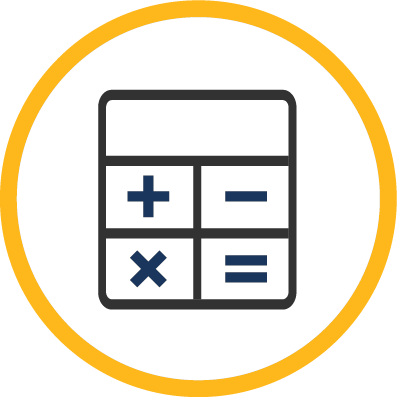Pay, entitlements and working conditions
Learn about your entitlements as an employee and what to expect in your pay.
On this page:
Types of employees
Employees get different pay and entitlements depending on their type of employment. It’s important to know what type of employee you are.
Full-time employees and part-time employees (or permanent employees):
- work regular hours (an average of 38 a week for full-time and less than 38 for part-time
- get paid leave, including annual leave and personal (sick and carer’s) leave, under the National Employment Standards (NES)
- get written notice when their employment ends, or payment instead of notice.
Casual employees:
- aren’t guaranteed ongoing work
- get a casual loading or specific casual pay rate
- get some leave entitlements under the NES, such as paid family and domestic violence leave
- don’t get written notice when their employment ends, or payment instead of notice.
For more information, see Types of employees.
Tip: Changing from casual to full-time or part-time employment
Eligible casuals can notify their employer in writing of their intention to change to permanent (full-time or part-time) employment. An employer can only refuse the notice for certain reasons.
For more information, see Becoming a permanent employee.
Independent contractors
Independent contractors have different rights and obligations to employees. They provide services to another person or business and aren’t employees of that person or business. They negotiate their own fees and working arrangements. Minimum pay rates also don’t apply.
You may still be an employee, even if you have an Australian Business Number (ABN) or your employer says you’re an independent contractor.
Find out more about being an independent contractor.
 Step-by-step guide
Step-by-step guide
If you’re not sure or think you might be an employee instead, follow our step-by-guide to resolving a workplace issue: I think I could be an employee not a contractor.
Getting paid
Minimum pay rates
For most employees, the minimum wage is set by the award that covers their industry or occupation.
The minimum wage refers to the amount of pay before tax is taken out (gross pay).
Some employees have a different minimum wage depending on their employment type, age or work capacity.
If an award covers an employee, they’ll be paid based on their classification in the award. Classifications are descriptions of roles and types of work. They’re often referred to as levels or grades. Find more information on our Award classifications page.
Junior rates
A junior employee (under 21 years of age) is paid a percentage of the relevant adult pay rate under their award or registered agreement. However, sometimes there are no specific junior rates or another rate applies.
 Example: Exception to junior rates under Hospitality Award
Example: Exception to junior rates under Hospitality Award
Luca is 19 and serves alcohol at a wine bar on weekends.
Luca is covered by the Hospitality Award. Under this award, Luca would normally receive the junior rate for 19-year-olds. However, the award provides that a liquor service employee receives the full adult rate.
Therefore, Luca receives the adult rate rather than the junior rate for 19-year-olds.
For more information, or to check junior rates in your award, visit our Junior pay rates page.
 Pay Calculator
Pay Calculator
Find out the minimum pay rates that apply for your award with our Pay and Conditions Tool.
Not covered by an award or registered agreement
The National Minimum Wage applies to employees who are not covered by an award or registered agreement. This is the minimum pay rate provided by the Fair Work Act 2009 and is reviewed each year.
You can find the current minimum wage rate at Minimum wages.
Apprentices and trainees
Apprenticeships and traineeships are formal training arrangements that combine work with study for a qualification in a trade or occupation. Special pay rates and conditions apply to these employees.
Employers can’t pay a young worker a trainee or apprentice rate unless they have a formal training contract with the worker.
An employer can’t pay an employee trainee rates just because they are young or new to the job.
Find out more about entitlements for Apprentices and trainees.
Penalty rates and allowances
In many jobs, employees get penalty rates for evening, weekend, public holiday and overtime work.
Employees may also receive extra payments, or allowances, for things like laundry, driving vehicles or doing special types of work.
 Interactive award tools
Interactive award tools
Do you work in the fast food, restaurant or café industry? Find out more about your pay, including penalty rates and allowances, with our interactive tools.
If you work in another industry:
- check out our downloadable pay guides for common penalty rates in your industry
- calculate penalty rates and allowances with our Pay and Conditions Tool.
 Example: Penalty rates
Example: Penalty rates
Tunde is an international student and has started working part-time in a takeaway burger shop.
Tunde is rostered to work 2 weeknights, from 8pm until midnight, and all-day Saturday. Tunde’s employer tells her that she’ll get paid $25 per hour.
Tunde is covered by the Fast Food Award. Under the award, she is entitled to penalty rates for working on a Saturday and for working between 10pm and midnight. Her employer can’t pay her a flat $25 per hour, because this is much less than Tunde is entitled to.
Individual flexibility arrangements
You and your employer can agree to enter into an individual flexibility arrangement to vary penalty and overtime rates, as long as you are better off overall. This agreement needs to be in writing and signed by you and your employer. If you are under 18, it must also be signed by a parent or guardian.
Learn more about Individual flexibility arrangements.
Common questions about pay
Find the answers to common questions about pay:
- What must I be paid for?
- Are pay slips compulsory?
- Can my employer deduct money from me?
- Can my work be unpaid?
What must I be paid for?
Your employer must pay you for all hours you work and any compulsory time spent for work. This includes time any time you spend opening or closing a store, or compulsory training or a meeting. For example, if your employer has told you to be at work at 7:45am to open the shop at 8am, they must pay you from 7:45am.
Your employer must also pay you in money for all work you perform. They can’t pay you with goods such as food. This is also known as ‘payment in kind’ and is illegal.
Find out more about being paid for work on our Frequency of pay page.
Are pay slips compulsory?
Employers must give all employees a pay slip within one working day of pay day. Employers can give employees paper or electronic pay slips, such as a link sent via email. Find out more about pay slip requirements.
 Record My Hours app
Record My Hours app
Our Record My Hours app makes it quick and easy for you to record and store the hours you work. Find out more about our Record My Hours app.
Can my employer deduct money from me?
There are times an employer can deduct money from your pay. For example, tax has to be deducted from your pay.
Any other deduction can only happen if:
- you agree in writing and it’s principally for your benefit
- it’s allowed by a law, a court order or Fair Work Commission order
- it’s allowed under your award, or
- it’s allowed under your registered agreement and you agree to it.
An example of this is authorising your employer to make additional payments into your super fund.
Even if a deduction is allowed under your award, registered agreement or employment contract, the term has no effect (and can’t be used to make a deduction) if:
- the deduction benefits your employer (or someone related to them) directly or indirectly and is unreasonable in the circumstances, or
- you are an employee under 18 years of age and your parent or guardian hasn’t agreed in writing.
An employer generally can’t:
- deduct money from you for breakages or cash discrepancies, unless it’s permitted by your award or agreement
- make you pay back your wage
- take money out of your pay to fix an overpayment, except in limited circumstances.
Learn about the rules that apply for deductions and paying back money from our Deductions and related issues section.
 Example: Can’t deduct money for cash discrepancies
Example: Can’t deduct money for cash discrepancies
Charlotte works in a gift shop as a cashier. She’s covered by the Retail Award.
When the staff are closing the store one Saturday evening, Simon (the manager) announces that the amount in the till is $100 less than what it should be. He tells Charlotte that he will be deducting $100 from her pay to make up for it.
Simon can’t do this because the:
- Retail Award doesn’t allow an employer to deduct money from an employee for a cash discrepancy
- deduction has not been authorised by Charlotte and would not be principally for her benefit (and isn’t allowed on any other basis).
Can my work be unpaid?
There are different types of work arrangements that can be unpaid, including:
- student placements
- work experience and internships
- unpaid trials.
Unpaid work trials
Unpaid work trials are only okay for as long as needed to demonstrate the skills required for the job. Before starting a new job you might be asked to perform a trial. Depending on the nature of the work, this could range from an hour to one shift. Before you start the trial, it should be made clear to you that it is an unpaid trial.
 Example: Demonstrating skills in an unpaid trial
Example: Demonstrating skills in an unpaid trial
Jason has been asked to do an unpaid trial to make coffee at a cafe.
The trial lasts 5 hours. In addition to making coffee, Jason is also asked to clean the bathrooms, take out the garbage and sweep up the cafe.
These activities go beyond demonstrating the skills required for the job. Jason should be paid for the time worked.
Internships and work placements
Internships or unpaid work placements can be lawfully unpaid when they are part of an approved job training or work experience program or vocational placement and the work is done in accordance with the relevant program or placement.
If you’re not sure if you should be paid, you can ask the employer or visit our Unpaid work pages for more information.
Minimum entitlements and conditions
As an employee, you have minimum entitlements under the National Employment Standards (NES). These entitlements will vary depending on whether you’re a full-time, part-time or casual employee. This includes entitlements to:
- annual leave
- sick and carer’s leave
- public holidays
- notice of termination.
There are also different rules that apply to your work conditions, including hours of work and breaks. Again, these can be different depending on your type of employment, the industry you work in and the award or registered agreement that applies to you.
If you’re not sure about your award, check with your employer, look at our List of awards or use our Find my award tool.
Industry-based entitlements
Our website provides information about a number of important entitlements for common awards and industries. These include:
- hospitality
- restaurants and cafes
- retail.
If you want to know more about how your pay and conditions may be affected by your industry and award, look out for these boxes on the website. Select the industry that applies to you to get tailored information.

Learn more about:
- Annual leave
- Personal leave (sick and carer’s leave)
- Not working on public holidays
- Breaks
- Notice and final pay